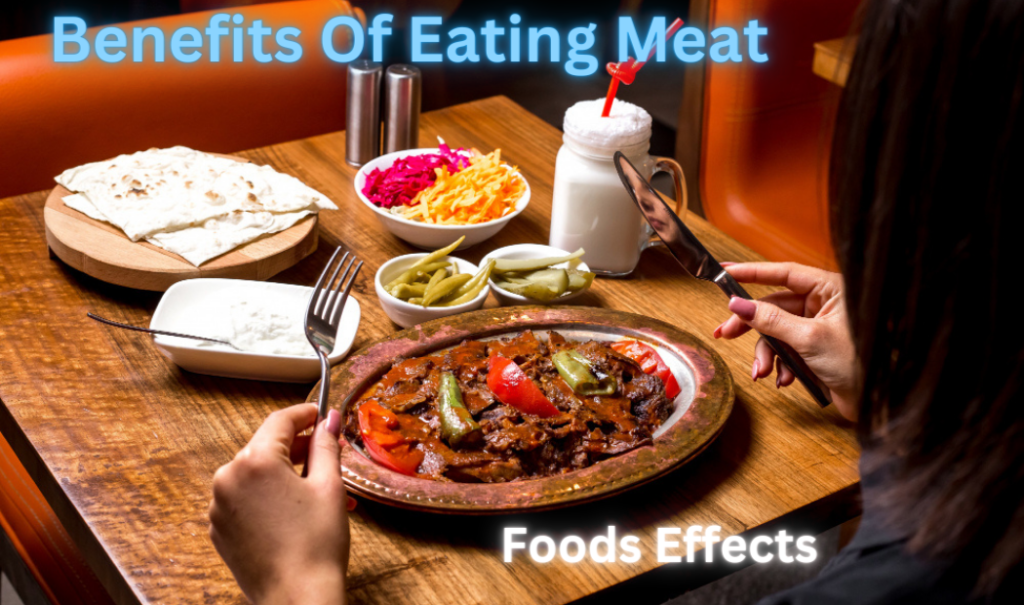The Comprehensive Guide to the Benefits of Eating Meat
Introduction
In the complex and ever-evolving landscape of dietary choices, the discussion around meat consumption remains particularly vibrant. Whether viewed through the lens of nutrition, sustainability, or culinary tradition, the benefits of eating meat have sparked significant debate and interest. This blog post aims to delve into the numerous advantages associated with incorporating meat into one’s diet, providing a thorough exploration of its nutritional, physical, and even cultural impacts.
Nutritional Powerhouse: The Benefits of Eating Meat
One of the primary benefits of eating meat lies in its dense nutritional profile. Meat is a rich source of essential nutrients that are vital for maintaining optimal health. These nutrients include high-quality protein, vitamins such as B12, B6, and D, and minerals like iron, zinc, and selenium. These components play crucial roles in various bodily functions, from oxygen transport and DNA synthesis to immune support and muscle maintenance.
Protein and Amino Acids
Protein is fundamental to the human body, serving as the building block for muscles, enzymes, hormones, and other critical tissues. The benefits of eating meat are particularly notable in the context of protein quality and availability. Animal-based proteins contain all nine essential amino acids in sufficient quantities, which are necessary for various physiological functions, including growth and repair.
Vitamins and Minerals
Another significant advantage in the benefits of eating meat is its vitamin and mineral content. Vitamin B12, found almost exclusively in animal products, is essential for nerve function, red blood cell formation, and DNA synthesis. Similarly, heme iron, which is abundant in meat, is more readily absorbed by the body compared to non-heme iron found in plant-based foods. This is particularly beneficial for individuals prone to anemia or those with increased iron requirements, such as pregnant women and growing children.
Muscle Growth and Athletic Performance: The Benefits of Eating Meat
For athletes and individuals engaged in regular physical activity, the benefits of eating meat can be especially pronounced. Meat consumption supports muscle growth, repair, and overall physical performance due to its rich protein content and bioavailability of nutrients.
Enhanced Muscle Synthesis
The high-quality protein found in meat provides the necessary amino acids for muscle protein synthesis, which is crucial for muscle growth and recovery. This makes meat an indispensable part of the diet for bodybuilders, athletes, and fitness enthusiasts who require increased protein intake to support their training regimens.
Improved Recovery and Performance
The benefits of eating meat also extend to improved athletic performance and quicker recovery times. The presence of nutrients like creatine, which is found in red meat, has been shown to enhance strength, power output, and muscle endurance. Additionally, the anti-inflammatory properties of omega-3 fatty acids, particularly in fatty fish, aid in reducing exercise-induced muscle damage and soreness.
Mental Health and Cognitive Function: The Benefits of Eating Meat
Emerging research highlights the benefits of eating meat for mental health and cognitive function. Certain nutrients found in meat are essential for brain health, influencing mood, cognitive performance, and overall mental well-being.
Brain-Boosting Nutrients
The benefits of eating meat for cognitive health are largely attributed to nutrients like vitamin B12, iron, zinc, and omega-3 fatty acids. Vitamin B12 is critical for neurological function and has been linked to reduced risk of cognitive decline and dementia. Iron plays a pivotal role in oxygen transport to the brain, while omega-3 fatty acids, particularly DHA, are essential for maintaining the structural integrity of brain cells.
Mood Regulation
The benefits of eating meat extend to mood regulation, with deficiencies in key nutrients often linked to increased risk of depression and anxiety. Adequate intake of zinc and iron supports neurotransmitter function and hormone regulation, contributing to improved mood stability and mental resilience.
Culinary Tradition and Enjoyment: The Benefits of Eating Meat
Beyond the nutritional and physiological advantages, the benefits of eating meat also encompass cultural and culinary aspects. Meat has been a staple in human diets for centuries, featuring prominently in traditional dishes and culinary practices worldwide.
Cultural Significance
The benefits of eating meat are deeply rooted in cultural heritage and traditions. Many cultures celebrate meat-centric dishes during festivals, ceremonies, and communal gatherings. These practices not only highlight the historical importance of meat but also foster a sense of community and shared identity.
Culinary Versatility
The culinary benefits of eating meat are vast, offering a wide range of textures, flavors, and cooking methods. From succulent steaks and tender roasts to savory stews and grilled delicacies, meat’s versatility allows for diverse and satisfying culinary experiences. This variety not only enhances dietary enjoyment but also encourages culinary creativity and exploration.
Sustainability and Ethical Considerations: The Benefits of Eating Meat
In the contemporary discourse on diet and sustainability, the benefits of eating meat are often weighed against environmental and ethical concerns. While these considerations are important, it’s also crucial to recognize efforts and advancements in sustainable meat production.
Sustainable Practices
One of the emerging benefits of eating meat is the shift towards more sustainable and ethical farming practices. Innovations in agriculture, such as regenerative farming, aim to improve soil health, enhance biodiversity, and reduce the carbon footprint of meat production. By supporting such practices, consumers can enjoy the benefits of eating meat while contributing to environmental stewardship.
Ethical Farming
Ethical considerations in meat consumption are increasingly being addressed through improved animal welfare standards. Many farmers and producers are adopting humane practices, ensuring that animals are raised in healthy and respectful environments. This focus on ethical farming aligns with the broader benefits of eating meat by promoting responsible and conscientious consumption.
Conclusion
The benefits of eating meat are multifaceted, encompassing nutritional, physical, mental, and cultural dimensions. While individual dietary choices will vary, understanding the comprehensive advantages of meat consumption can inform more balanced and informed decisions. By recognizing and supporting sustainable and ethical practices, consumers can enjoy the myriad benefits of eating meat while contributing to a healthier and more sustainable food system.
Foods Effects is a website that discusses the benefits of various foods and includes recipes. It offers vegetarian dinner ideas and Best Foods for Weight Loss tips.
if you want to know more information about Benefits Of Eating Meat, then click On Wikipedia


